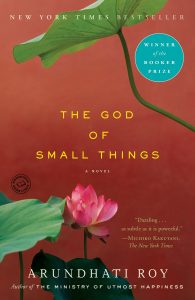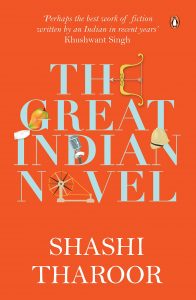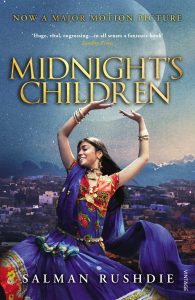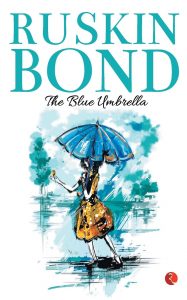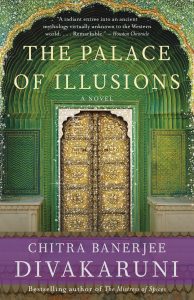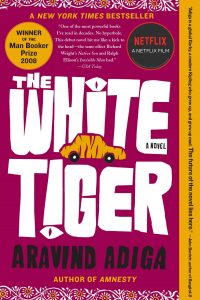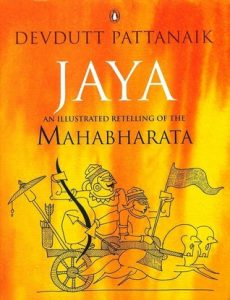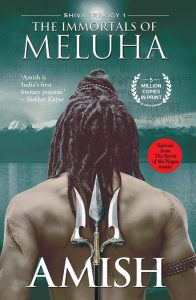20 Must Read Books by Indian Authors For Your TBR list
From Kalidas to Premchand, Indian literature has had plenty of time to develop and grow to become what it is today. However, a lot of what is written today is a direct product of what India as a country went through less than a century ago – the Indian continent gave birth to twins, India and Pakistan, and the entire populace felt the birth pangs with the partition. Indian literature then, can be read as distinctly pre-independence and post-independence, and so many of these books written by Indian authors, even though written decades after the partition, still somehow manage to imbibe the bitter aftertaste of the horrific incident that cost us a million lives.
In any case, these books written by Indian authors are perfect for your to-be-read list if you’ve got one.
Also read: 10 Books You Should Read if You’re Not a Reader
1. Em and the Big Hoom by Jerry Pinto
Jerry Pinto’s autobiographical novel, Em and The Big Hoom follows the story of the unnamed narrator and his family that includes an elder sister, a mother who they refer to as Em, and a father who’s the Big Hoom. The novel revolves mostly around Em, the mentally unstable mother of two who has more bad days than good. Even though Em and The Big Hoom seems like a story about a particular woman with a mental illness, Pinto manages to universalise the plot with a tender understanding of parental relationships.
2. God of Small Things by Arundhati Roy
In one of the most popular titles to come out from post-colonial India, Arundhati Roy writes an impactful tale of love, loss, and inequalities. The book doesn’t shy away from sexuality even though it focuses on serious issues like casteism and the post-colonial Indian attitude. In 2014, The Telegraph named it one of the 10 all-time greatest Asian novels.
3. The Great Indian Novel by Shashi Tharoor
There is no doubt that the Ramayana and the Mahabharata are two of the most popular texts in India. Unsurprisingly, both these texts have been re-written in various contexts, more recent examples being Chitra Divakaruni’s The Palace of Illusions, Devdutt Pattnaik’s Sita, and Amish Tripathi’s Ram Chandra series. Likewise, Shashi Tharoor’s The Great Indian Novel too is one such modern rendition of the Mahabharata. A satirical retelling of the Indian epic, the novel re-imagines various characters from the Mahabharata as figures from the Indian Independence Movement. The novel has been especially praised for its charming wit and intertextual allusions.
4. Midnight’s Children by Salman Rushdie
While magical realism is one of the most popular styles in Latin American works of literature, Midnight’s Children is one of the few Asian works to also employ this fantastical literary style. The novel tells the story of India’s independence from British colonialism and the consequent partition between India and Pakistan. Instead of the cynical and dreary tone that many texts dealing with partition tend to take, Midnight’s Children takes up a sparkly, hopeful one. It follows the story of Saleem, a boy born on the midnight of 15th August 1947 with unusual powers.
5. Six Acres And a Third by Fakir Mohan Senapati
Written by Fakir Mohan Senapati, also known as the “Father of Modern Odia Literature”, Six Acres And a Third or Chha Mana Atha Guntha, is one of the earliest texts criticizing the exploitation of landless peasants by feudal lords in British India. The novel follows the tale of a greedy Zamindar named Mangaraj who uses duplicitous ways to acquire his wealth but eventually meets the fate he deserves.
6. The Blue Umbrella by Ruskin Bond
Perhaps one of the most criminally underrated writers in India, Ruskin Bond does not receive as much attention as he deserves. The veteran writer has a knack for writing the simplest stories encompassing the most profound realities of life. While people seem to categorise his work as Children’s literature, there is much for grown-ups to learn from his work as well. The Blue Umbrella follows the tale of a little girl named Biniya who receives a beautiful blue umbrella from some Japanese tourists, and the only shopkeeper in her village, Ram Bharosa, becomes obsessed with acquiring the umbrella. More than anything else, The Blue Umbrella is a lesson in kindness.
7. The Complete Adventures of Feluda by Satyajit Ray
While Satyajit Ray is remembered as one of the most gifted filmmakers in Indian history, he also has a rich body of work in literature. Ray’s Feluda is a character much inspired by Arthur Conan Doyle’s Sherlock Holmes, as the prolific filmmaker was an avid reader of crime thriller books. Feluda, in many ways, is an Indianized Sherlock, accompanied by a cousin named Tapesh like Holmes is accompanied by Watson. However, do not mistake it for a cheap copy of a legendary work, for Feluda’s stories are a brilliant read in their own right.
8. The Guide by R.K. Narayan
R.K. Narayan is remembered best for his fictional town of Malgudi, and like most of his works, The Guide takes place in Malgudi as well. The 1956 novel tells the story of Raju, who progresses from being a tour guide to a holy man worshipped by villagers. Although on the surface the novel is a simple enough bildungsroman, it also explores ideas of gender, class and caste in post-independent India.
9. Wings of Fire by A P J Abdul Kalam
One of the most loved political figures in recent history, former president and the late scientist, Dr A P J Abdul Kalam pens the story of his life in his autobiography, Wings of Fire. In the book, Dr Kalam revisits his early life, experiences that led him to pioneer Indian space research, his days as a student at MIT Chennai, and his efforts to establish the Vikram Sarabhai Space Centre. With so much wisdom to offer, the former president’s autobiography is one of the most profound books written by Indian authors.
10. The Inheritance of Loss by Kiran Desai
Written by Kiran Desai, The Inheritance of Loss explores the effects of post-colonial hangover, as well as the internal conflicts within India. The novel follows the story of Biju and Sai – Biju is an illegal Indian immigrant living in the US, while Sai lives in Kalimpong with her grandfather who detests Indian customs and traditions. While Biju spends his days working at exploitative workplaces in America, Sai falls in love with a Nepalese insurgent.
11. The Palace of Illusions by Chitra Divakaruni
Another rendition of Mahabharata, The Palace of Illusions by Chitra Divakaruni doesn’t offer a fresh new take or an unusual ending to the familiar Indian epic. Instead, it relies on a perspective largely ignored before. Narrated by Draupadi, perhaps the worst wronged character in the epic, The Palace of Illusions provides a more sympathetic voice to the often misjudged character.
12. The Secret Diary of Kasturba by Neelima Dalmia Adhar
As it often happens with world-renowned men, we simply forget acknowledging the personal experiences of people around them, especially women. The Secret Diary of Kasturba wishes to change that. The novel weaves a narrative based on historically recorded incidents, coloured with the voice of Mahatma Gandhi’s wife, Kasturba. The shift of perspective sheds light on otherwise distant events with a more personal tone.
13. The Shadow Lines by Amitav Ghosh
Another impotant text about the Indian partition, there isn’t much of a story to Amitav Ghosh’s The Shadow Lines. Instead, you’re treated to a retelling of a number of fragmented experiences akin to works in post-war British literature. The novel essentially comments on the arbitrariness in dividing lines, how they may seem real to someone, and be completely non-existent to someone else. The novel focuses on various incidents of historical importance, including the Indian movement of Independence and the partition, the Second World War, and the communal riots of 1964 in Calcutta and Dhaka.
14. The White Tiger by Aravind Adiga
Books are always better than adaptations. If nobody has got this tattooed yet, count me in. Even though the Netflix movie based on The White Tiger is already out, at the risk of sounding like a book snob, I’d like you to consider reading the book first. Aravind Adiga’s The White Tiger reels you ino the depressing world of Balram Halwai, a poor driver from a family that boasts of multi-generational poverty. Instead of giving in to his fate and spending the rest of his life glued to his master’s boot, Balram decides to climb his way up the food chain – even if it means choosing violence.
15. Train to Pakistan by Khushwant Singh
One of the most important books by Indian authors about the partition, Khushwant Singh’s Train to Pakistan sheds life on the horrific violence that took place when India was at the cusp of independence. Instead of universalising the pain and suffering, Khushwant Singh decides to localise it instead, choosing to bring a human aspect to the whole ordeal, making it all the more tangible.
16. India After Gandhi by Ramchandra Guha
While most books on Indian history end with the end of the British Raj, in India After Gandhi, Ramchandra Guha starts off at that very point. The book traces India’s history from the time immediately after the end of British rule, analysing the socio-economic aspects of a freshly independent India.
17. Jaya by Devdutt Pattanaik
Like The Great Indian Novel and The Palace of Illusions, Jaya too is a retelling of the Mahabharata by Devdutt Pattanaik. Unlike the other two works, Jaya does not take a particularly unusual route in its retelling of the grand epic. Specifics and details remain the same, even though much importance is given to lesser-known events. Devdutt Pattanaik also painstakingly provides copious footnotes relating to various incidents in the work, which are a fascinating addition.
18. Godaan by Premchand
Considered one of the most famous novels ever written in the Hindi language, Premchand’s Godaan, like most of his other works, deals with socio-economic disparities and the exploitation of the rural poor. Godaan follows the story of Hori, a poor peasant who wishes to buy a cow. It has been translated in English as The Gift of The Cow.
19. The Discovery of India by Jawahar Lal Nehru
Written during his imprisonment at the Ahmednagar fort during British Raj, Jawahar Lal Nehru uses his knowledge of ancient Indian texts to trace the history of India, ending with the last years of British rule.
20. The Shiva Trilogy by Amish Tripathi
One of the most popular Indian titles in recent history, The Shiva Trilogy by Amish Tripathi loosely adapts its characters of Hindu Gods much loved by Indian audiences. The first book, The Immortals of Meluha, begins with a man named Shiva, leader of the Tibetan Guna tribe, setting foot in Meluha. Shiva is instantly recognised as the fabled saviour of Meluha’s people. While Tripathi’s writing style leaves something to be desired, his work is especially great for people who have a hard time reading lengthy texts, as the books are paced well and are generously entertaining.
Did you like our list of must-read books by Indian authors? If you think we missed out on some of your favourite titles, comment below to let us know!



